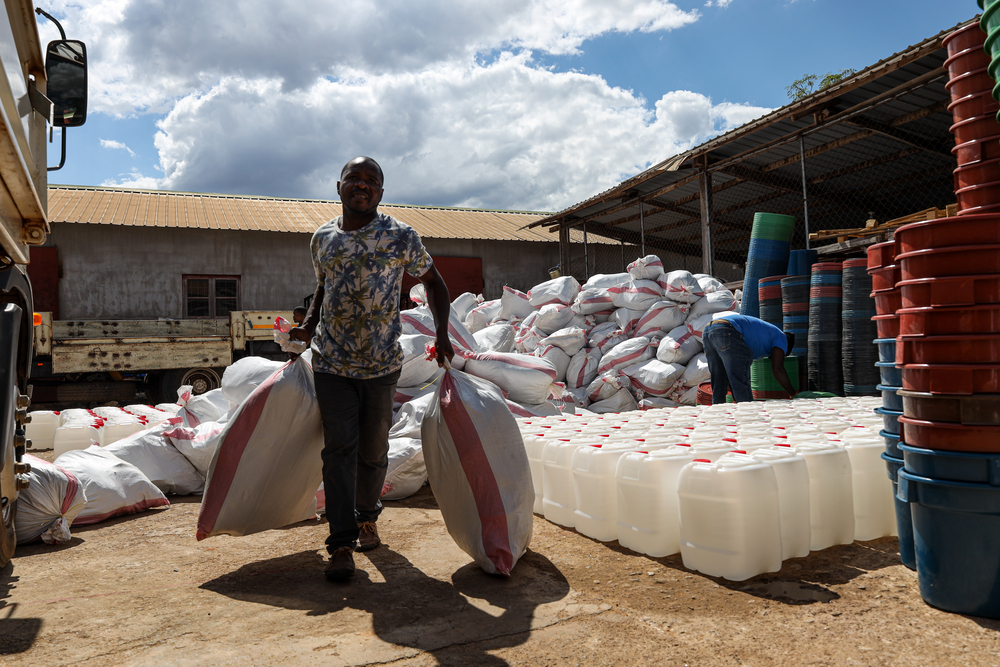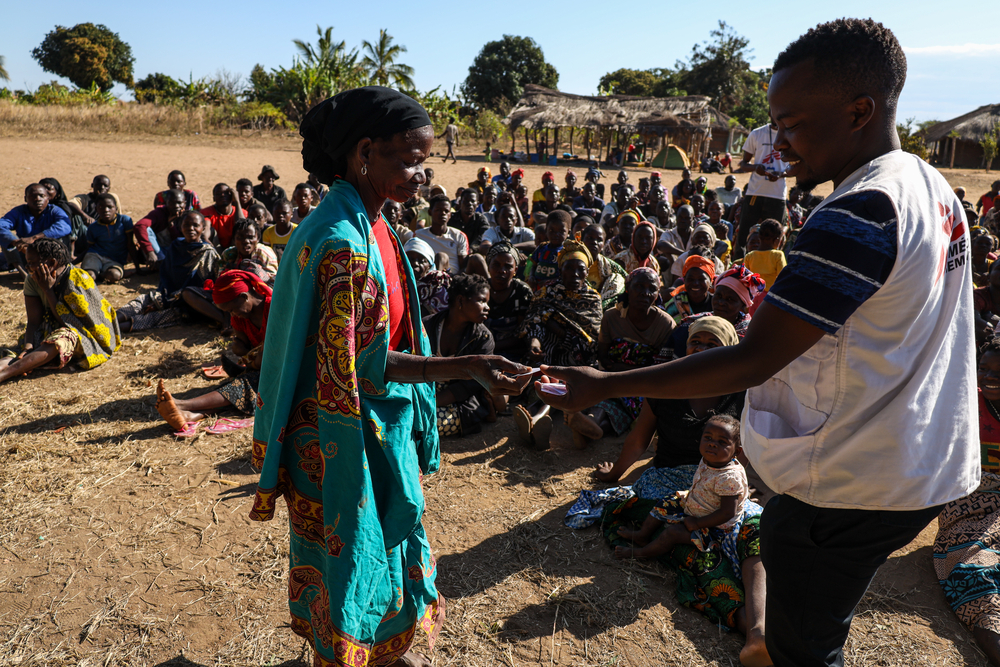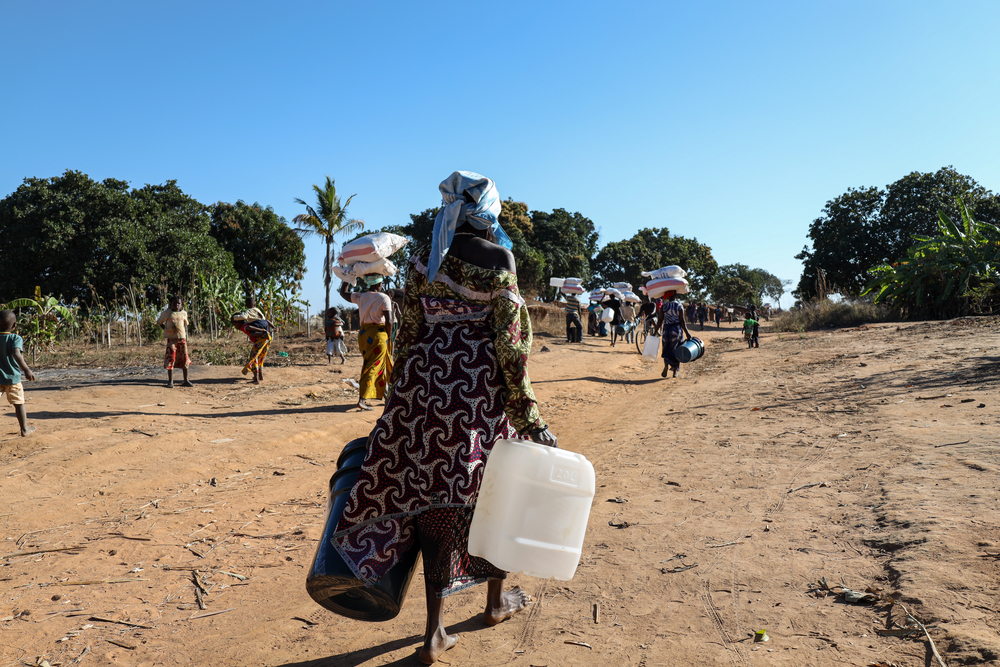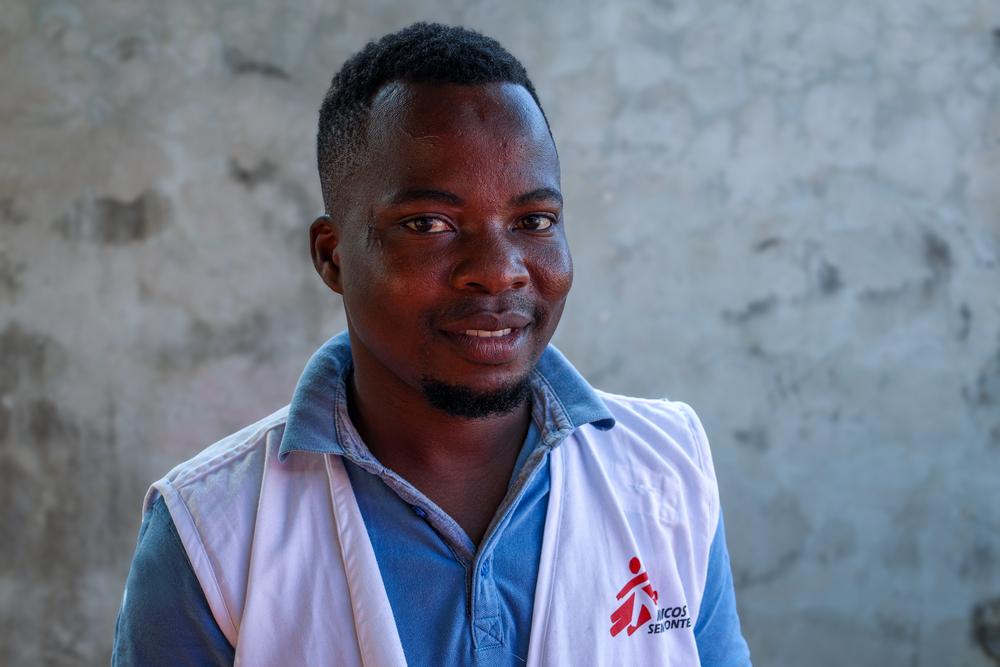“I am in charge of doing distributions of relief items in various areas of Cabo Delgado. I started working for MSF in my hometown, Mocímboa da Praia, but I was forced to move to the south of the province when the town was heavily attacked, for the second time, in 2020.
I really enjoy my work. I am very happy when I feel the satisfaction of helping others. Whenever I am in the field, I feel that.
We have been distributing emergency kits to many people because they are running from their homes in fear. To be able to respond quickly and ensure the distribution is well done, we must be always alert. When we hear of a new attack, we immediately think ‘do we know people in that area?’ We usually call community leaders in the villages nearby and they tell us where people have fled to. We also take the time to explain who MSF is and what our principles are, but that's not a problem. MSF acceptance is usually really good here. We have been working in Cabo Delgado for a while now and people already know and trust our work.
Once we understand the magnitude of the situation, we contact the local government to get an official list of people who have been displaced and who should receive the kits. From there, the MSF supply team prepares the kits and loads them onto trucks. In one of our warehouses, for example, we always keep 2,000 kits ready in case of an emergency.

Once we arrive at the spot where people are, we distribute tickets to recently displaced people so they can collect the kits the day before the distribution, which is based on the official list. This is crucial so that everything runs smoothly. We design a circuit with an entry point, a place where we hand out the kits, and an exit point. Part of my role on distribution day is also to walk around, talk to people and see if there are any issues. It’s a bit like conflict mediation, you know? Sometimes, displaced families arrive in areas where there were already local communities living and this can create tensions.

People always arrive in poor shape. Many arrive with nothing, not even shelter. We distribute things like plastic sheeting, blankets, pots and pans, and toothbrushes, for example. Those things can be very useful.
For me this is very moving, because I went through the same situation.

After the first attack on Mocímboa da Praia in 2017, my family decided to stay because we thought the situation was not so alarming. The night of the attack in June 2020, I was sleeping, alone in a house, and suddenly I heard many shots and men shouting. That day I spent 24 hours hiding and only drinking water. I soon managed to contact some friends and we went out, walking through the woods. I walked 43 kilometres to the town of Awasse and got a ride to Mueda, where I stayed for some time.
Then, as time passed, things calmed down and I managed to get in touch with my family. Today we are all fine, but I know what it's like to go through that. So, by helping other displaced people, I feel very happy.”
